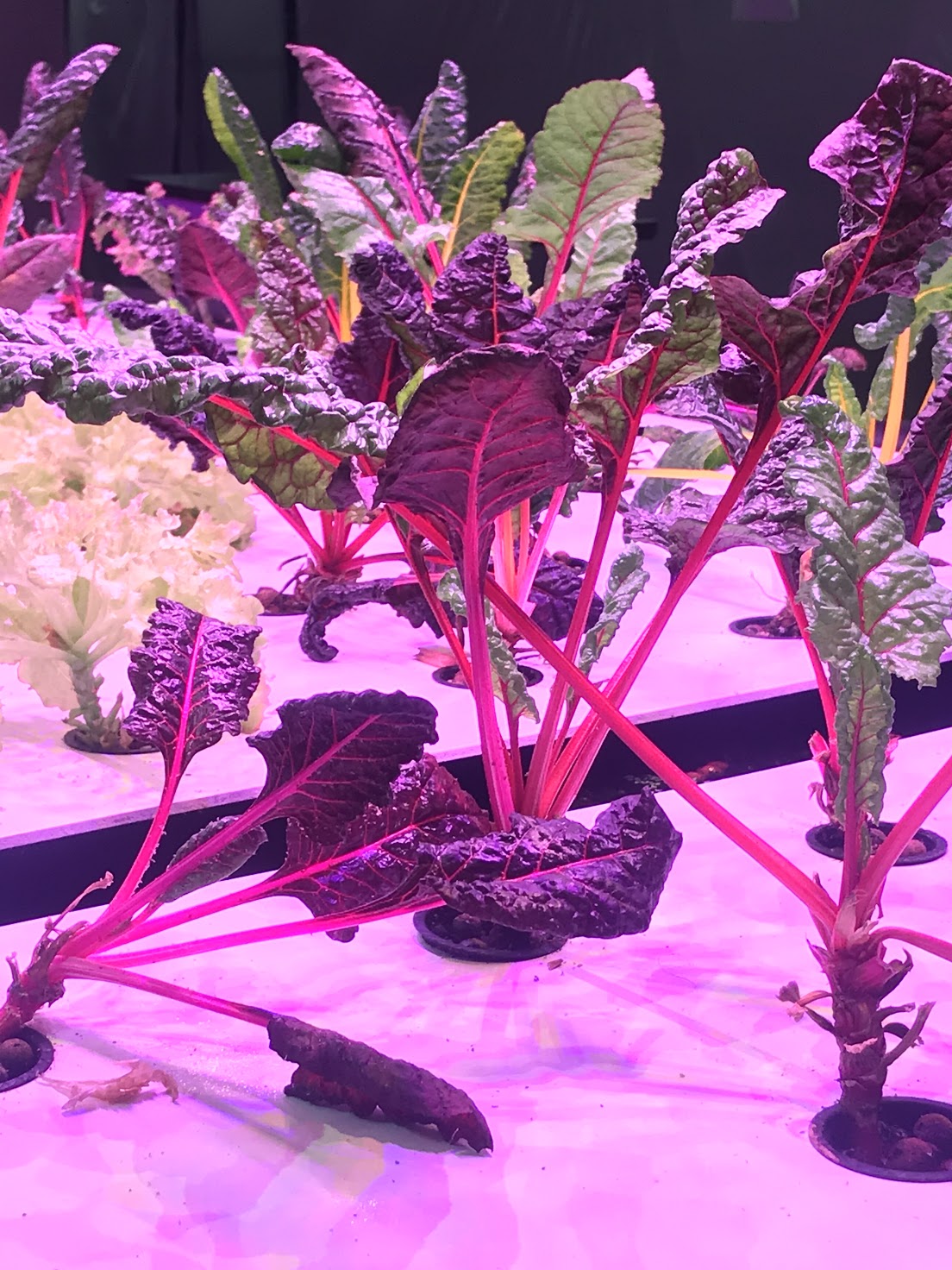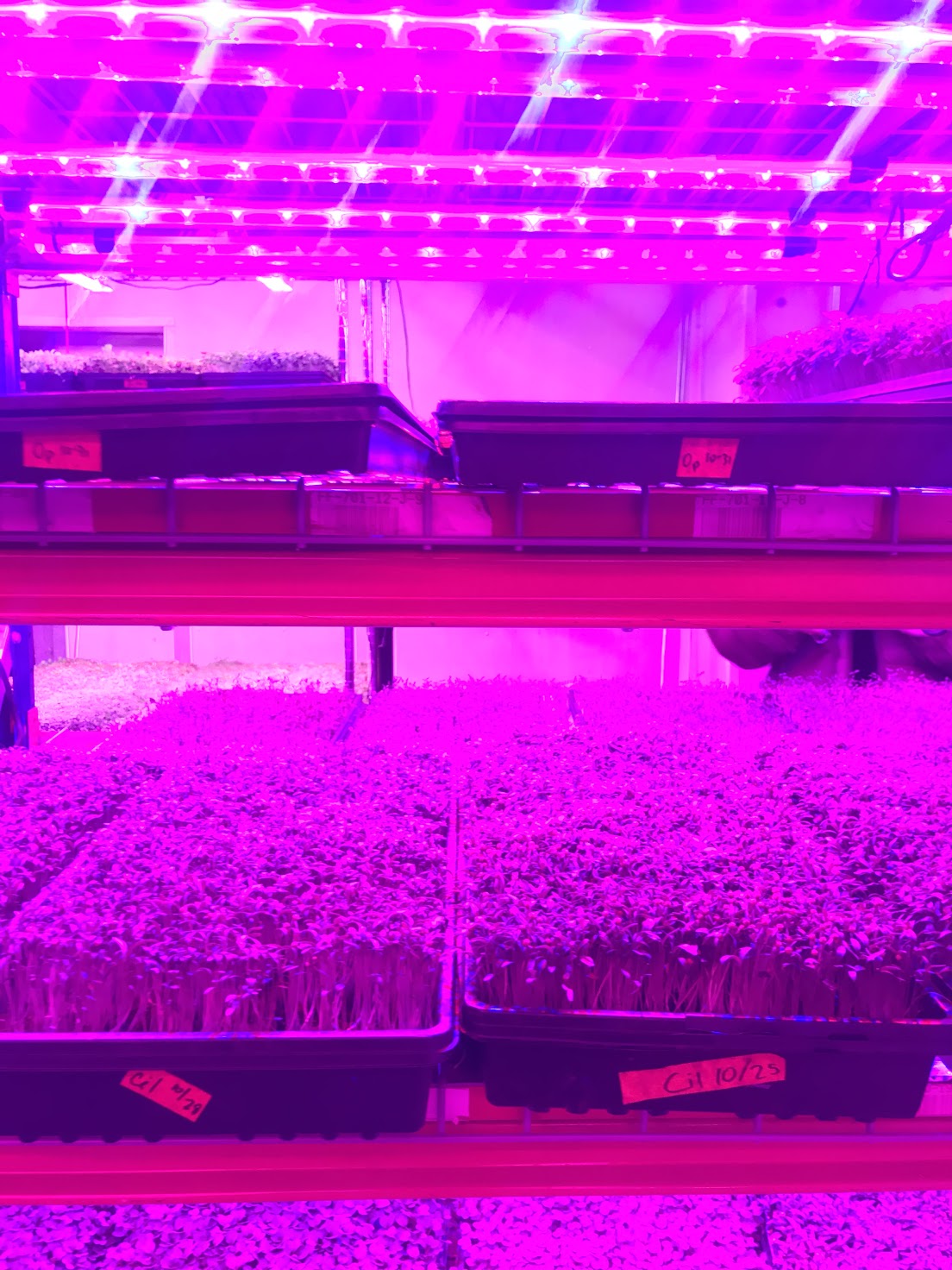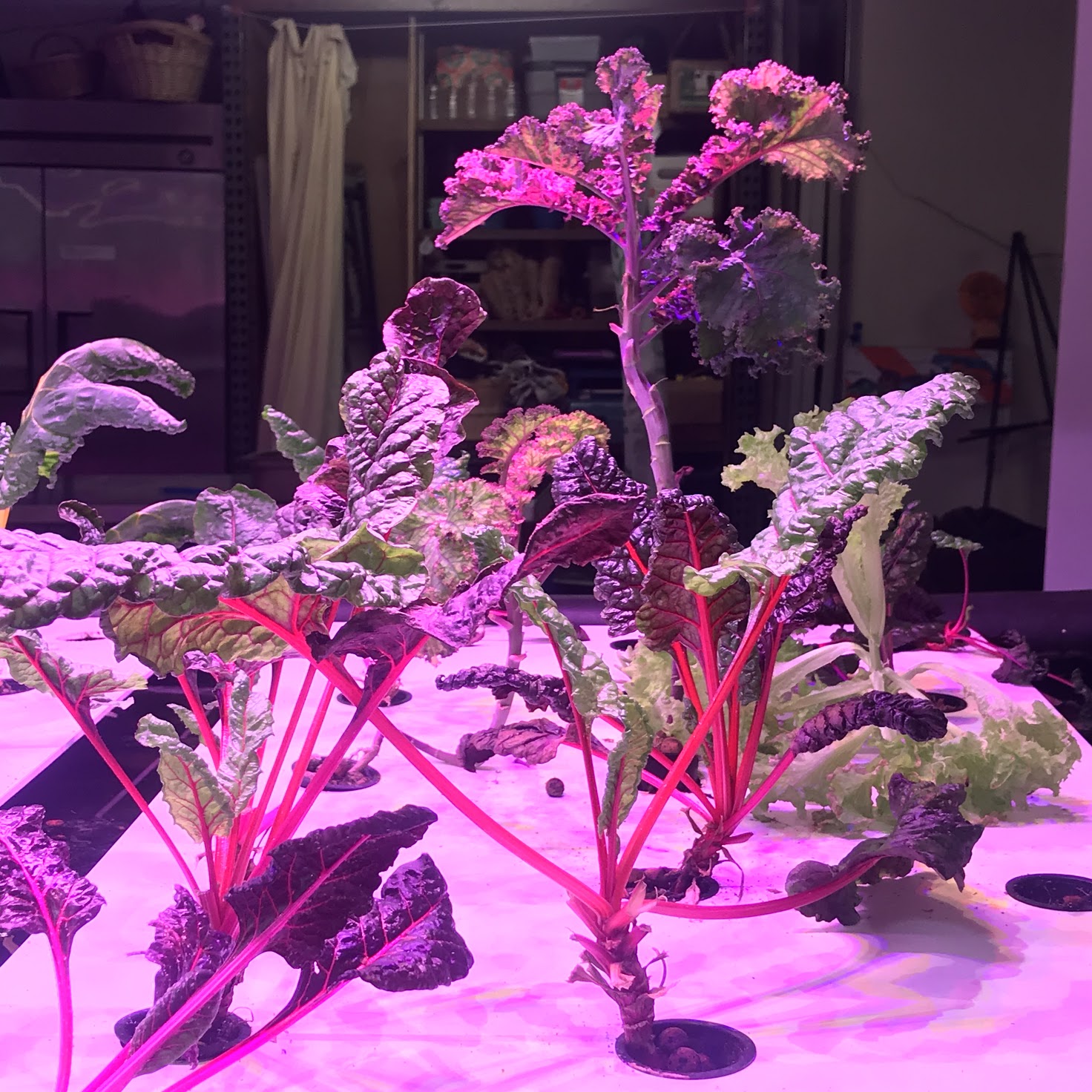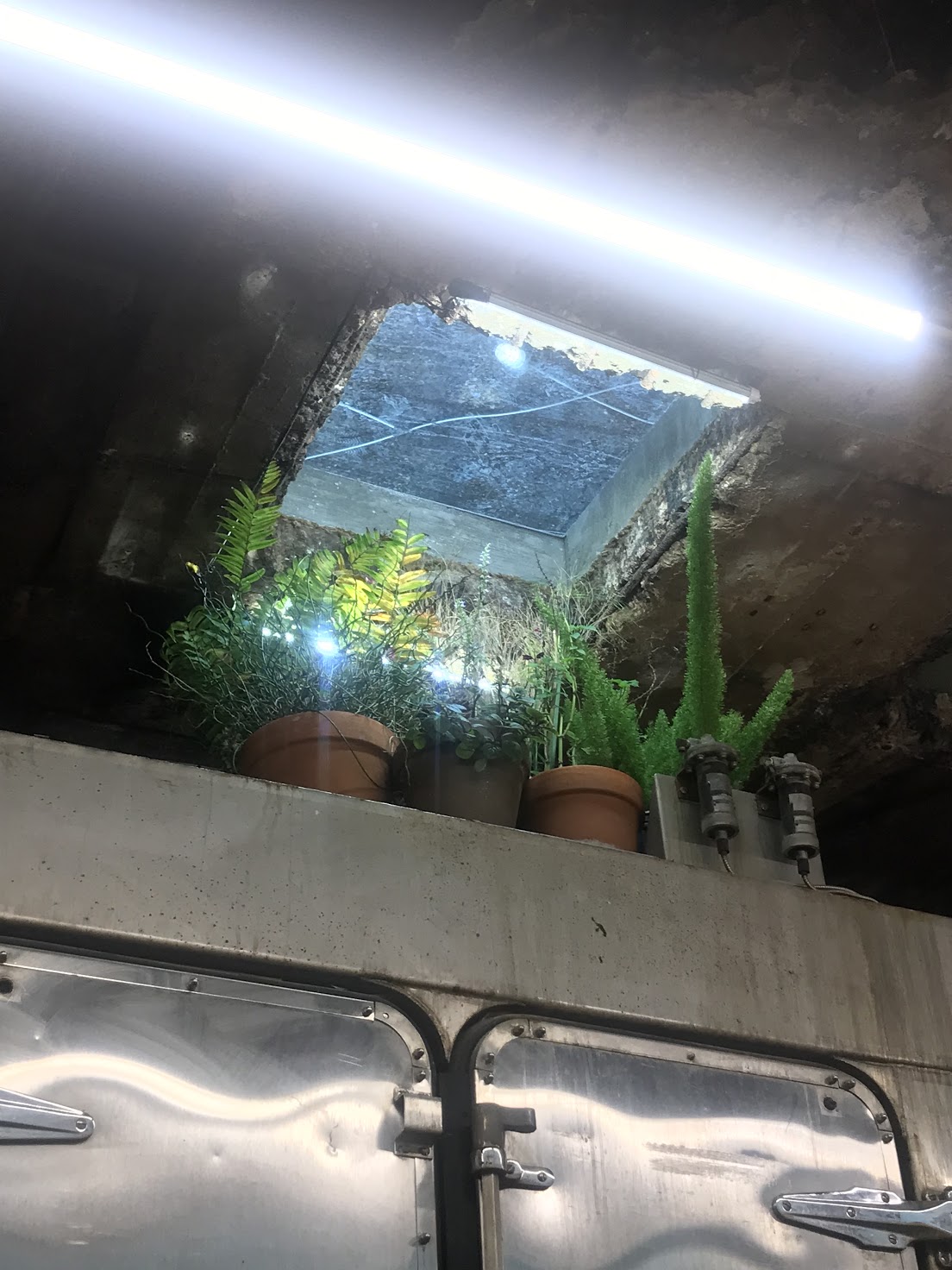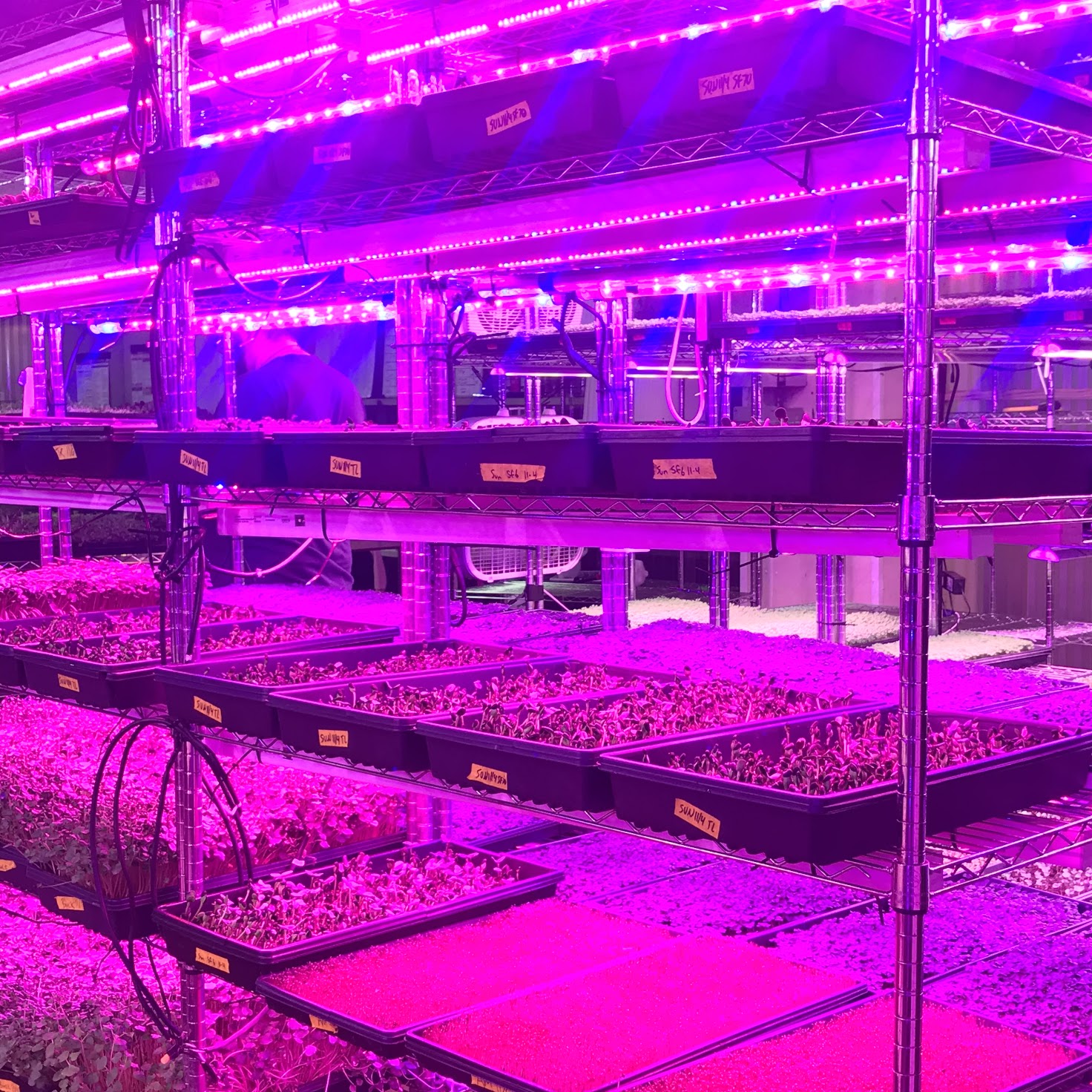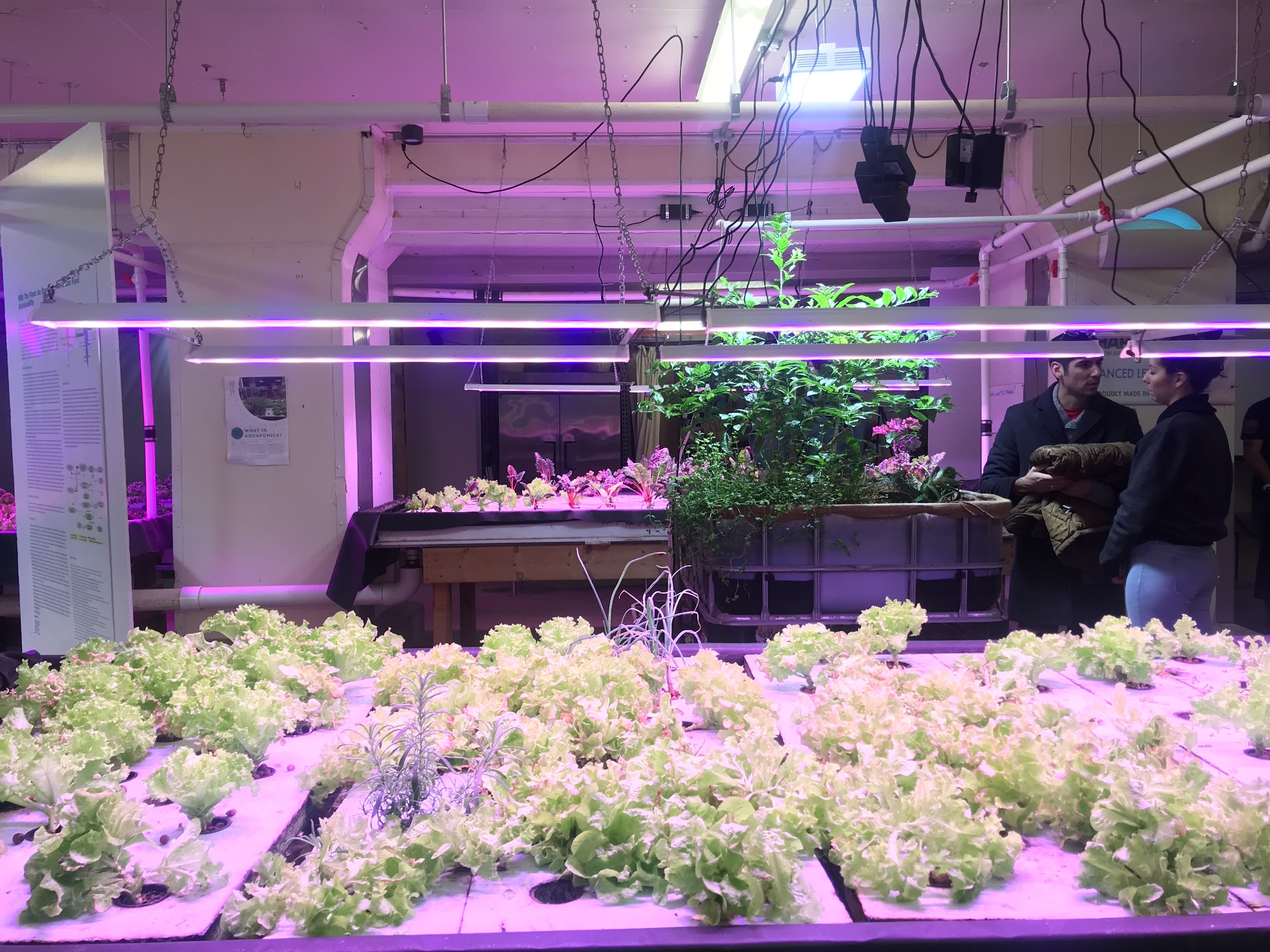NURF visits The Plant
Creeping around metallic pipes, intertwining vines sprawl toward the sunlight seeping through a skylight window inside a large factory building located in Chicago’s Back of the Yards.
“The plants look like they’re reaching for the sun,” a girl said.
“Aren’t we all reaching for the sun?” another girl answered.
Northwestern University Real Food, a club dedicated to shifting the university’s food system to becoming more socially and environmentally sustainable, visited The Plant on November 10.
A former meat packing facility repurposed into a collaborative community of food businesses, The Plant houses a variety of spaces that strive to change the way the city of Chicago thinks about food and the environment. From an aquaponics farm (a system combines aquaculture, the farming of aquatic animals and plants) and hydroponics (a method of growing plants in a mineral-rich water solvent) to a museum, the space has the goal of cultivating local circular economies and building, teaching and revitalizing urban communities.
In circular economies, “conventional waste streams from one process are repurposed as inputs for another, creating a circular, closed-loop model of material reuse,” according to their website.
A variety of sustainable businesses take part in this circular economy at The Plant, from a vegan chocolate company to a bakery to a vegan ice cream shop.
Club members visited the production site of Tuanis Chocolate, a vegan chocolate company that sources their cacao directly from Costa Rican farmers in the Talamascan region. As the group tasted the raw cacao Costa Rican cacao beans, the company’s founder, Jon Spurgeon, explained how he travels to Costa Rica himself to pay the farmers “superior wages to encourage and promote sustainability and growth of their farms and families.”
While touring the rest of the facility, the group learned about urban sustainability, a contrast to the origins of the building they were in: As a former 93,500 square foot pork processing facility, the building once participated in the infamous animal agriculture industry detailed in Upton Sinclair’s “The Jungle.”
Weinberg senior Dakota Baker said the experience prompted her to reflect on the environmental practices of her routine actions, specifically those relating to food.
“I feel like I should think about the food I consume and where it’s coming from and the environmental impacts it has,” Baker said.
In the future, Baker hopes to make some changes in her life at Northwestern. Living in a sorority house, she said leftovers that over a day old get thrown out, which means “a lot of food is getting thrown out on a daily basis.”
“There’s no composting, no donation of excess food, let alone do we know where the school is sourced from,” Baker said.
After visiting The Plant and seeing the power of sustainable practices, she feels mobilized to express her concerns to those power of making changes.



